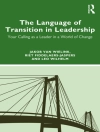Victory Joseph Conrad – Victory (also published as Victory: An Island Tale) is a psychological novel by Joseph Conrad first published in 1915. Through a business misadventure, the European Axel Heyst ends up living on an island in what is now Indonesia, with a Chinese assistant, Wang. Heyst visits a nearby island when a female band is playing at a hotel owned by Mr. Schomberg. Schomberg attempts to force himself sexually on one of the band members, Alma, later called Lena. She flees with Heyst back to his island and they become lovers. Schomberg seeks revenge by attempting to frame Heyst for the murder of a man who had died of natural causes.
A propos de l’auteur
Joseph Conrad (born Teodor Józef Konrad Korzeniowski, 3 December 1857 3 August 1924) was a Polish-born novelist. Some of his works have been labelled romantic: Conrad’s supposed ‘romanticism’ is heavily imbued with irony and a fine sense of man’s capacity for self-deception. Many critics regard Conrad as an important forerunner of Modernist literature. Conrad’s narrative style and anti-heroic characters have influenced many writers, including Ernest Hemingway, D.H. Lawrence, Graham Greene, Joseph Heller and Jerzy Kosinski, as well as inspiring such films as Apocalypse Now (which was drawn from Conrad’s Heart of Darkness).












